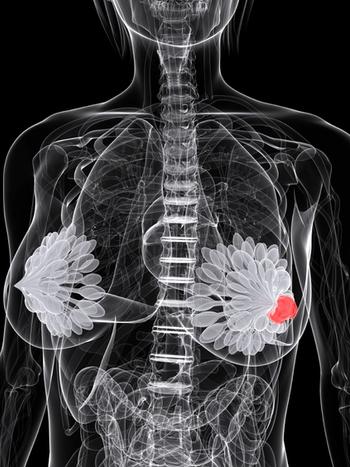
Breast Cancer
Latest News

Latest Videos
CME Content
More News

A key opinion leader explains how she discusses treatment options and trial data with patients with early stage HER2+ breast cancer.

Sara Hurvitz, MD, presents the case of a 66-year-old woman with ER+ HER2+ invasive ductal carcinoma and brain metastases.

A look at exciting clinical trials enrolling patients with HER2+ breast cancer and leptomeningeal disease, a previously unheard-of opportunity.

Patients with node-positive breast cancer did not have a significant improvement in disease-free survival with the addition of internal mammary node irradiation to regional nodal irradiation; however, patients with medically or centrally located tumors could benefit.

Sarah M. Tolaney, MD, MPH, describes her usage of pertuzumab, trastuzumab, and hyaluronidase-zzxf subcutaneous injections in her clinical practice during the COVID-19 pandemic for patients with HER2+ breast cancer.

An expert oncologist explains the combination subcutaneous injection therapy of pertuzumab, trastuzumab, and hyaluronidase-zzxf for patients with early-stage HER2+ breast cancer.

A neuro-oncologist explains the prevalence of leptomeningeal metastases in HER2+ breast cancer and her preferred method of treatment.

Oncologists debate the use of neratinib for metastatic HER2+ breast cancer treatment in the context of the HER2CLIMB clinical trial data on tucatinib.

Sarah M. Tolaney, MD, MPH, reviews the treatment options for patients with early-stage HER2+ breast cancer in the frontline setting.

Sarah M. Tolaney, MD, MPH, provides an overview of how goals of care and prognosis differ between patients with early-stage HER2+ breast cancer and advanced or metastatic HER2+ breast cancer.

Updated findings from the phase 3 MONALESSA-3 trial identified a significant overall survival benefit among postmenopausal patients with hormone receptor–positive, HER2-negative breast cancer who were treated with ribociclib and fulvestrant vs matched placebo.

Dr Stefania Maraka presents the case of a 53-year-old woman with de novo metastatic mutated ER/PR+ HER2+ breast cancer and brain metastases.

Experts discuss their choice of systemic therapies after a patient with metastatic HER2+ breast cancer and brain metastases progresses on tucatinib therapy.

Ruta Rao, MD, discusses her rationale for treating metastatic HER2+ breast cancer with a tucatinib-containing regimen based on data from the HER2CLIMB trial.

Stefania Maraka, MD, explains the second- and third-line treatment options for metastatic HER2+ breast cancer and how she collaborates with breast oncologists.

Through traditional treatment, acupuncture, acupressure, and mind-body therapy, Heather Greenlee, ND, PhD, MPH, discusses how clinicians who treat patients with breast cancer can become more aware of integrative approaches for their practices.

Dr Sara Hurvitz provides an overview of HER2+ breast cancer, and Dr Ruta Rao details the frontline treatment options available for metastatic cases.

Ruta Rao, MD, presents the case of a 36-year-old woman with metastatic HER2+ breast cancer and brain metastases.

Bria-IMT has been granted fast track designation by the FDA for the treatment of metastatic breast cancer.

Between 2004 to 2016, investigators reported that mammography rates decreased among breast cancer survivors.

A significant proportion of patients with nonclonal ductal carcinoma in situ were found to have recurrence that was not genetically linked to the primary tumor.

Prospective data found higher rates of occult signet ring cell gastric cancer among individuals with no family history of gastric cancer but who carried CDH1 P/LP variants.

Patients with clinically lymph node–positive breast cancer who achieved cN0 disease following treatment neoadjuvant chemotherapy with 3 or more negative sentinel lymphoma nodes identified by sentinel lymphoma node biopsy alone had a decrease in nodal recurrence.

A survey of United States breast oncologists suggested that racial differences exist in the perceived barriers to accessing genetic counseling and testing for patients with breast cancer.

The second follow-up analysis of the OlympiA trial showed a statistically significant improvment in overall survival with use of adjuvant olaparib to treat germline BRCA1/2 mutation–associated breast cancer.









































